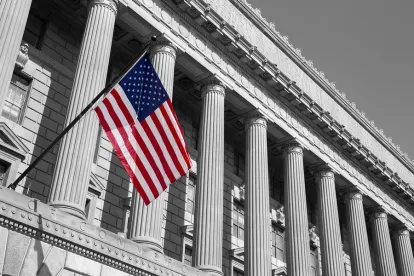Today, the Office of the U.S. Trade Representative (USTR) and the Department of Commerce published in the Federal Register a request for public comments on current U.S. free trade and investment agreements, preferential trade programs, and trade relations with countries that are members of the World Trade Organization (WTO). Currently, the United States is a signatory to the WTO, a party to 14 free trade agreements, and a party to 40 bilateral investment treaties. Written comments must be submitted on or before July 31, 2017. See 82 Federal Register 29622 (June 29, 2017).
Previously, the President issued Executive Order 13796 (April 29, 2017), which requires the USTR and the Commerce Department, in consultation with other federal government agencies, to commence a comprehensive review of all agreements to which the United States is a party to identify the root causes of the U.S. trade deficits in goods.
As part of the review process, the USTR and Commerce Department are seeking public comments in the following key areas:
-
The performance of individual free trade agreements (FTA) and bilateral investment treaties to which the United States is a signatory;
-
The performance of the WTO agreements with regard to trading partners with which the U.S. does not have an FTA but with which the U.S. runs significant trade deficits in goods (i.e., China, European Union, India, Indonesia, Japan, Malaysia, Switzerland, Taiwan, Thailand and Vietnam);
-
The performance of U.S. preferential trade programs (i.e., Caribbean Basin Initiative, Generalized System of Preferences and Africa Growth and Opportunity Act);
-
Information on any violations or abuses or unfair treatment by trade and investment partners that have harmed American workers or the domestic industry; (b) harmed intellectual property rights held by U.S. companies or U.S. persons; (c) reduced the rate of innovation in the United States; or, (d) impaired research and development from occurring in the United States;
-
Information as to whether an agreement, treaty or preferential trade program has not met predictions with regard to new jobs created, favorable effects on the trade balance, expanded market access, lowered trade barriers or increased U.S. exports; and,
-
Information as to specific benefits or opportunities created by the agreements, treaties, programs or trade relations with regard to U.S. exports, lowered trade barriers, promotion of US intellectual property rights holders, rate of innovation in the United States, U.S.-based research and development, protection of U.S. investors in foreign markets, etc.
Companies that are using these programs, either for imports of finished goods and raw materials into the United States or for exports of U.S. products to country partners, are encouraged to submit their comments to the USTR and the Commerce Department to ensure that their voices are heard and that the importance of international supply chains is carefully considered during the review process. The subsequent report that will be submitted to the President at the conclusion of the comprehensive review will drive the next steps that will be taken by the Administration, which could include renegotiation of these agreements and treaties, modification of preferential trade programs, or even withdrawal from or termination of such agreements and programs.



 />i
/>i

